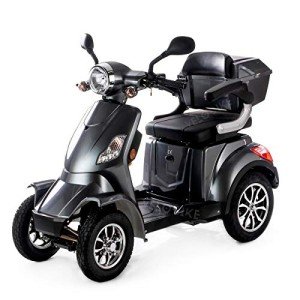Mobility Scooters: A Comprehensive Guide
Mobility scooters have become a necessary mode of transport for many people dealing with mobility obstacles. Alejandro Gates explores the various facets of mobility scooters, including their types, advantages, features, and a guide for potential buyers.
Comprehending Mobility Scooters
Mobility scooters are electrically powered devices designed for individuals with restricted mobility. They offer a method of transportation for people who may have difficulty strolling however still wish to keep their self-reliance. They are available in numerous styles and functions to accommodate a wide variety of requirements.
Kinds Of Mobility Scooters
Mobility scooters can typically be categorized into 3 main types:
| Type | Description | Best For |
|---|---|---|
| Compact Scooters | These are small and lightweight, ideal for inside your home and short journeys. | Users with restricted storage area or those who take a trip typically. |
| Mid-size Scooters | A balance between portability and stability, appropriate for both indoor and outside usage. | Those who need to cover a variety of terrains. |
| Heavy-duty Scooters | Large and robust, developed for rugged outside usage and much heavier people. | Users needing additional weight capability or going off-road. |
Key Features of Mobility Scooters
The option of mobility scooter often depends on the features that line up with specific requirements. Here are some of the essential features to think about:
- Weight Capacity: Mobility scooters feature various weight limitations. It is essential to choose a scooter that can adequately support the user's weight.
- Variety: The range a scooter can take a trip on a single charge varies. Depending on user requirements, one might choose scooters with a series of up to 40 miles.
- Speed: Most mobility scooters can reach speeds between 4 to 8 miles per hour. Consider what speed is comfy and safe for the desired environment.
- Turning Radius: A compact turning radius is vital for indoor use, permitting for simpler navigation in tight spaces.
- Battery Type: The type of batteries used can affect the scooter's efficiency. Lead-acid and lithium-ion batteries are the most typical.
Benefits of Using Mobility Scooters
The advantages of mobility scooters extend beyond simply transport. Some key advantages consist of:
- Independence: Users can browse their environment without relying on caretakers, promoting independence and self-esteem.
- Health Benefits: Using a scooter can motivate outside activity, causing physical and mental health enhancements by reducing sensations of seclusion.
- Convenience: Scooters can easily be run in different environments, whether inside, in mall, or outdoors.
Essential Considerations When Buying a Mobility Scooter
When buying a mobility scooter, numerous factors to consider can assist ensure that you select the ideal design:
Assess Individual Needs:
- Mobility level: Consider just how much assistance the person will require.
- Variety of use: Determine where the scooter will mainly be used (inside, outdoors, on rough terrains, etc).
Test Drive:
- Always test drive numerous designs to discover an appropriate fit. Take note of comfort, ease of steering, and the scooter's responsiveness.
Evaluation Safety Features:
- Look for scooters with appropriate safety features like lights, signs, and anti-tip designs.
Check Warranty and Service Options:
- A trustworthy warranty and readily available service alternatives are crucial for long-term usage.
FAQs about Mobility Scooters
1. How fast do mobility scooters go?Mobility scooters usually have speeds ranging from 4 to 8 mph, with the majority of developed for safety instead of high-speed travel. 2. Exist weight constraints on mobility scooters?Yes, mobility
scooters include specific weight limits, often varying from
250 lbs to over 500 pounds, depending on the design. 3. Can mobility scooters be utilized indoors?Certain designs, particularly compact scooters, are specifically developed for
indoor use and are simpler to maneuver in tight areas. 4. How often do the batteries require to be replaced?Battery life can vary based on usage, however normally, with appropriate care, batteries may last in between 1 to 3 years before needing replacement
. 5. Are mobility scooters covered by insurance?Coverage can differ, but some insurance coverage plans, including Medicare and Medicaid, may cover part of the cost. It's advised to contact private insurance suppliers. Mobility scooters work as a
important tool for numerous people, allowing them to preserve
their flexibility and self-reliance. By understanding the various types and functions of mobility scooters, individuals can make informed decisions tailored to their particular requirements.
Whether utilized for errands, mingling, or leisurely activities, mobility scooters can improve the quality of life for those with mobility constraints. Purchasing a mobility scooter is a decision that can substantially affect a person's life. Therefore, individuals ought to carefully examine their choices and choose a design that best aligns with their way of life and mobility requirements
.

